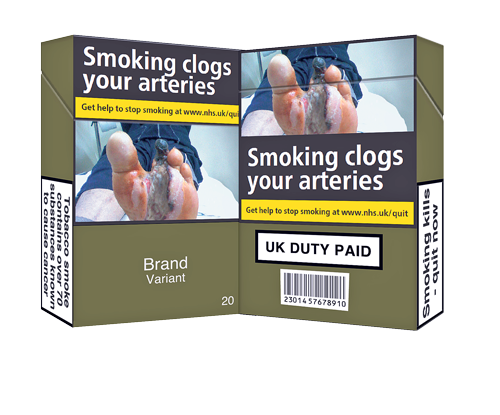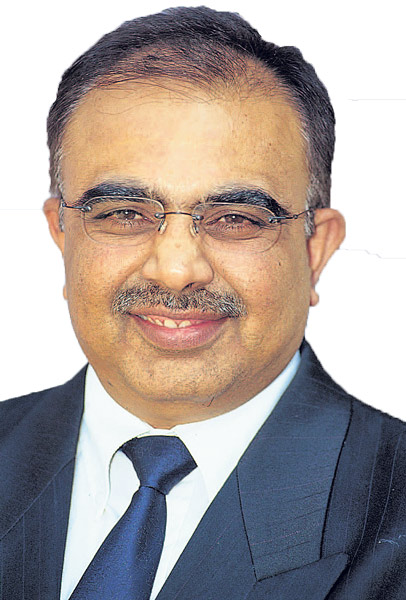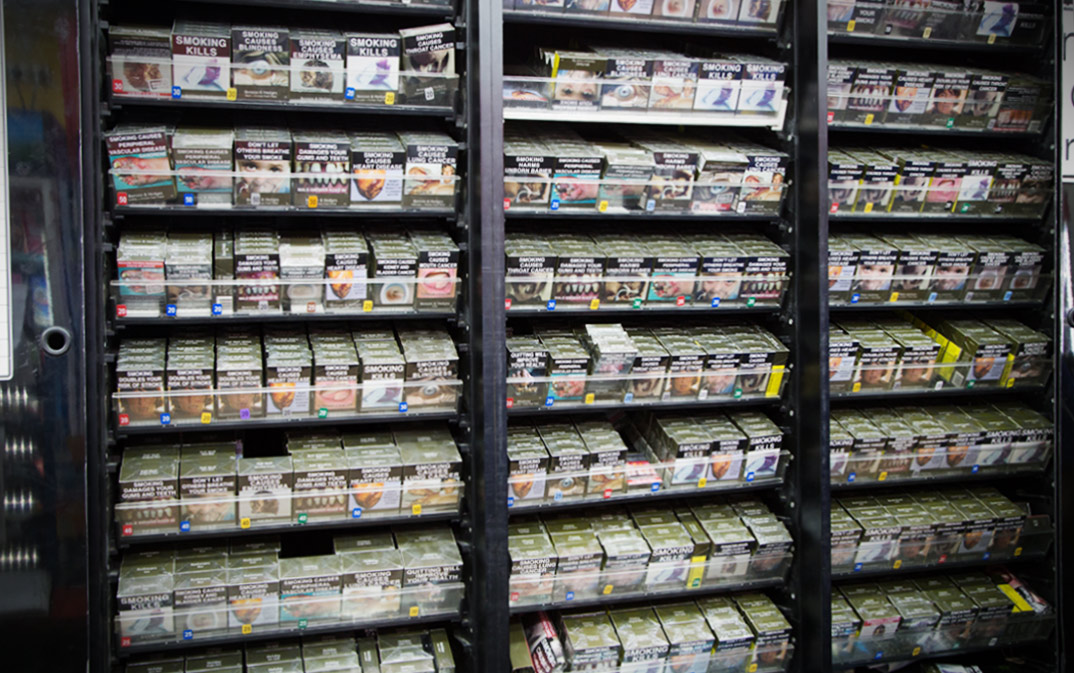The tobacco category has had a rough ride with increasing red tape over the past few years – and that’s set to continue next year and beyond.
To stay ahead of the game there are two pieces of legislation you should be familiar with. The revised Tobacco Products Directive (EUTPD II) and Standardised Packaging.
The new legislation will make it illegal for suppliers to produce packs smaller than 20 cigarettes and 30g in rolling tobacco. It will also change health warnings to include images and increase their size to cover 65% of the pack, and restrictions on how manufacturers can describe their products will be increased.
In addition to this regulation, the Government has passed standardised packaging, which means from May 2017 retailers will not be able to sell branded tobacco products.
From next month, working with your local depot will be even more important as the tobacco legislation begins to change. We spoke to four wholesalers to get their thoughts on TPD2 and find out how they will help convenience stores adjust.
 “Savvy operators will try to corner the market in the smaller pack sizes to secure a short-term competitive advantage. Those with favourable credit terms will be in a strong position and other operators will lose out.
“Savvy operators will try to corner the market in the smaller pack sizes to secure a short-term competitive advantage. Those with favourable credit terms will be in a strong position and other operators will lose out.
“With regard to standardised packs, intelligence from Australia would suggest that consumers slowly gravitate to the best value for money products rather than asking for brands by name. This erosion of brand strength will see smokers going for lower-cost options with obvious loss of transaction value for both wholesalers and retailers.”
Dee Thaya, Director, Abra Wholesale
 “We have set up a project team, looking at new processes and key risks, but most importantly, the project team will be focused on ensuring maximum in-store availability for our customers.
“We have set up a project team, looking at new processes and key risks, but most importantly, the project team will be focused on ensuring maximum in-store availability for our customers.
“The retailer zone on our website provides up-to-date information and advice. Our van sales team are also on hand to talk to retailers and prepare them for the upcoming changes. We are also planning to have a big focus on tobacco, the changes and the impact of this at our trade show Pro-retail.”
Martyn Ward, Managing director, Palmer & Harvey
 I don’t see anybody going to buy a massive amount of stock to prepare for TPD2. The investment in that is too large. We’ve not changed our buying habits. How much cash do you think a retailer has to do that?
I don’t see anybody going to buy a massive amount of stock to prepare for TPD2. The investment in that is too large. We’ve not changed our buying habits. How much cash do you think a retailer has to do that?
“They’re almost outlawing the product when it isn’t illegal. It won’t be too long before the tactics that we’ve seen on tobacco begin on sugar. We’re already seeing the early stages of that.”
Philip Jenkins, Managing director, Sugro
 “We’ll stock smaller packs for as long as they’re available but we won’t be buying in big volumes to keep them for longer. I think then it becomes about who has the deepest pockets.
“We’ll stock smaller packs for as long as they’re available but we won’t be buying in big volumes to keep them for longer. I think then it becomes about who has the deepest pockets.
“It’s important for retailers to ensure they don’t have it by the day TPD2 is phased in as that could cost them money.”
Nick Ramsden, Managing director, Dee Bee
Tobacco Timeline
Use this timeline as a guide for the changes under EUTPD II.
2017: From May 20 manufacturers must only produce the new standardised packs incorporating EUTPD II rules. You have a one year sell-through period.
2018: Following the one year sell-through period, retailers must only sell EUTPD II packs. Cheapest pack of cigarettes on shelf: £9. Cheapest RYO: more than £12.
2019: New security system introduced to track and trace products. It will tackle illicit trade, but it comes only two years after removal of packs under 20s and 30g RYO.
2020: EUTPD II also contains a ban on 'characterising flavours' other than tobacco, such as fruits, vanilla or alcohol, but most significantly menthol products.
Standardised Packaging
 Standardised packaging is an additional piece of legislation that the Government has chosen on top of EUTPD II and it’s this legislation the manufacturers are focused on overturning. As well as the previous regulations, standardised packaging includes:
Standardised packaging is an additional piece of legislation that the Government has chosen on top of EUTPD II and it’s this legislation the manufacturers are focused on overturning. As well as the previous regulations, standardised packaging includes:
- A ban on traditional branding and design. All packs must be olive green
- The brand and variety name will now only be presented in a standard size and font
Are you concerned about the changes? Find out what these three retailers think about the initiative, and what are the outcomes they expect.
 “I don’t think the supply of smaller packs will last for more than a few months after May. Not many retailers are rich enough to tie up their money in extra stock. If the cash & carry stock runs out, that’s it.
“I don’t think the supply of smaller packs will last for more than a few months after May. Not many retailers are rich enough to tie up their money in extra stock. If the cash & carry stock runs out, that’s it.
“Once people know about it, illicit trade will pick up because people will not be able to get what they want at the price they want to pay.”
Mahendra Jadeja, Jardins, north London
 “We don’t have millions of pounds to stock millions of cigarettes to last us for months. We work on our income from daily sales and some retailers go to cash and carries two or three times a week.”
“We don’t have millions of pounds to stock millions of cigarettes to last us for months. We work on our income from daily sales and some retailers go to cash and carries two or three times a week.”
“I don’t think there’s any other trade that I know of that is going through as many changes within a decade as we have.
“If you have a smoker who smokes a pack of 20 and wants to give up, it’s likely they’ll want to cut down to a smaller pack, like a 10. If that is not available it’s not helping them.
“This will be another reason for an increase in illicit tobacco. People after 10s might not be able to afford the increased price, so will switch to illicit.”
Suleman Khonat, Retailer & national spokesman for the Tobacco Retailers Alliance
 “We’ve started telling people they won’t be able to get 10s anymore and that 17s will be back at 20s again soon. Sterling Fresh Taste is probably one of the store’s bestsellers, so we’ll stockpile that in order to keep it running.
“We’ve started telling people they won’t be able to get 10s anymore and that 17s will be back at 20s again soon. Sterling Fresh Taste is probably one of the store’s bestsellers, so we’ll stockpile that in order to keep it running.
“We sell a lot of cigarettes and spend about £6,000 a week to top our gantry up, so with our rate of sale we wouldn’t have to worry about any leftovers next year.”
Matt Knight, Knight's Convenience Store (Premier Express), Gosport, Hampshire
A tighter grip on e-cigs
TPD2 legislation doesn’t end at the tobacco gantry. The law also affects e-cigarettes and includes regulation on what the products contain, as well as a change in the way they can be promoted and advertised from May 20 this year.
From November 20, e-cig manufacturers must start to only produce TPD-compliant stock. This will mean smaller refill containers, cartridge sizes reduced to 2ml and high-strength nicotine being scrapped. They must also be leak-free and provide a consistent dose.
Marc Michelsen, senior vice president communications & public affairs at Blu, says: “We welcome most of the changes and we think retailers should too. We believe the legislation will improve the quality of products available in the market, leading to increased consumer trust.”

TPD2 will restrict every e-cigarette company in the EU from using certain harmful chemicals, such as diacetyl, which is approved for food use but is associated with respiratory disease when inhaled.
Louise Stamper, commercial director of VIP, says: “Emissions testing will also need to be carried out. The largest diacetyl threat in e-liquid comes from production facilities outside the EU, but UK-based retailers that sell imported e-liquids may not be aware of the harmful ingredients used.”
The legislation will not affect how retailers can promote the products in store, which means maintaining strong availability and visibility is crucial.
“TPD2 will restrict advertising, but the principles of display still hold,” JTI’s Jeremy Blackburn told Retail Express. “E-cigs should be well-merchandised. I know everyone wants that slice of the counter space – from Wrigley to the local newspaper – but it’s important to give e-cigarettes a good display to make sure you become a destination store.”
Illicit Trading
Retailers and suppliers fear that the changes will be a gift to the illicit trade as the packs designs will be easier to counterfeit and the lower prices will be even more appealing.
Here’s how to fight back against it in your area:
You should be vigilant in looking out for instances of illegal trade and note any unexpected drop in sales in the category.
Ensure you are only buying stock from a reputable wholesaler.
Talk to customers about the effect the illicit trade is having on your business. Shoppers need to understand that they are supporting organised crime by purchasing them from other sources.
If you discover criminals in your area, report them anonymously to Crime stoppers, trading standards and our Smoke Them Out campaign on 020 7689 3379.



Comments
This article doesn't have any comments yet, be the first!